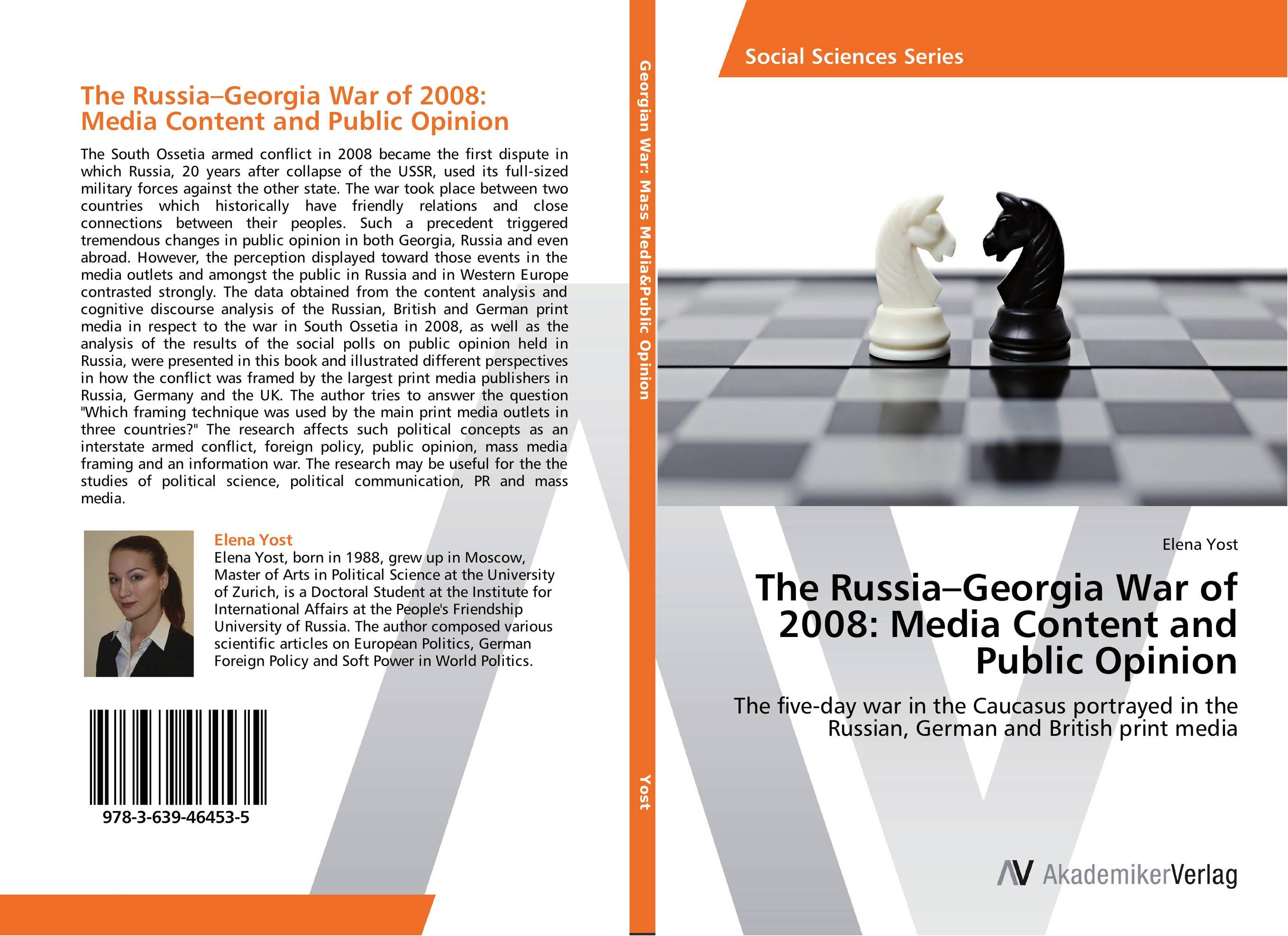| Поиск по каталогу |
|
(строгое соответствие)
|
- Профессиональная
- Научно-популярная
- Художественная
- Публицистика
- Детская
- Искусство
- Хобби, семья, дом
- Спорт
- Путеводители
- Блокноты, тетради, открытки
The Russia–Georgia War of 2008: Media Content and Public Opinion. The five-day war in the Caucasus portrayed in the Russian, German and British print media

В наличии
| Местонахождение: Алматы | Состояние экземпляра: новый |

Бумажная
версия
версия
Автор: Elena Yost
ISBN: 9783639464535
Год издания: 2014
Формат книги: 60×90/16 (145×215 мм)
Количество страниц: 108
Издательство: AV Akademikerverlag
Цена: 20073 тг
Положить в корзину
| Способы доставки в город Алматы * комплектация (срок до отгрузки) не более 2 рабочих дней |
| Самовывоз из города Алматы (пункты самовывоза партнёра CDEK) |
| Курьерская доставка CDEK из города Москва |
| Доставка Почтой России из города Москва |
Аннотация: The South Ossetia armed conflict in 2008 became the first dispute in which Russia, 20 years after collapse of the USSR, used its full-sized military forces against the other state. The war took place between two countries which historically have friendly relations and close connections between their peoples. Such a precedent triggered tremendous changes in public opinion in both Georgia, Russia and even abroad. However, the perception displayed toward those events in the media outlets and amongst the public in Russia and in Western Europe contrasted strongly. The data obtained from the content analysis and cognitive discourse analysis of the Russian, British and German print media in respect to the war in South Ossetia in 2008, as well as the analysis of the results of the social polls on public opinion held in Russia, were presented in this book and illustrated different perspectives in how the conflict was framed by the largest print media publishers in Russia, Germany and the UK. The author tries to answer the question "Which framing technique was used by the main print media outlets in three countries?" The research affects such political concepts as an interstate armed conflict, foreign policy, public opinion, mass media framing and an information war. The research may be useful for the the studies of political science, political communication, PR and mass media.
Ключевые слова: Medien, public opinion, Georgisch-S?dossetischer Konflikt, Russische Aussenpolitik, Media Content, Informationskrieg, War in South Ossetia, Information Warfare, Military conflict In Caucasus, Krieg im Kaukasus



